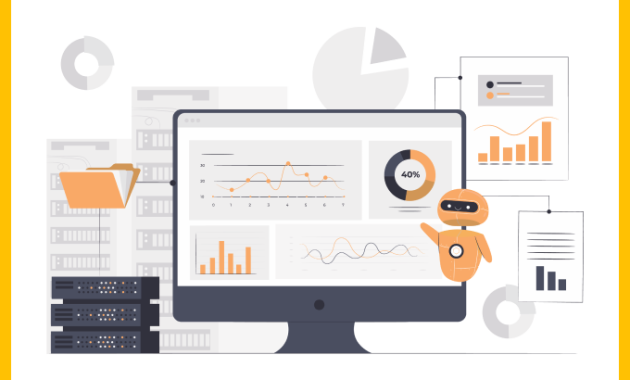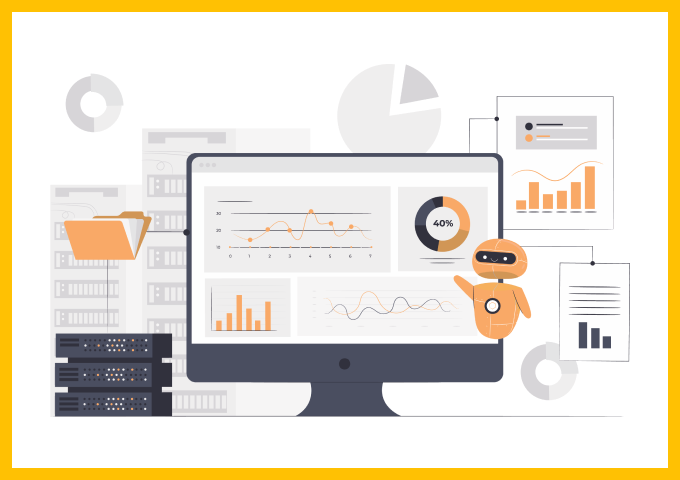
Best 8 Business Intelligence Tools To Analyze Data Like a Pro
In today’s data-driven world, businesses are constantly seeking ways to gain a competitive edge. The ability to analyze data effectively is no longer a luxury but a necessity. This is where business intelligence (BI) tools come into play. They empower organizations to transform raw data into actionable insights. This article will delve into the best 8 business intelligence tools available, equipping you to analyze data like a pro. We’ll explore their features, benefits, and how they can help you unlock the true potential of your data.
The Growing Importance of Business Intelligence
The volume of data generated daily is staggering. Businesses generate vast amounts of information. This includes customer interactions, sales figures, and market trends. Without the right tools, this data remains just that – data. It’s not easily understood or used. Business intelligence tools bridge this gap. They provide the means to collect, process, and analyze this data. This analysis leads to informed decision-making. This is crucial for business success.
Business intelligence allows companies to:
- Identify trends and patterns.
- Improve operational efficiency.
- Make data-driven decisions.
- Gain a deeper understanding of customers.
- Increase profitability.
As organizations increasingly rely on data, the demand for powerful business intelligence tools continues to rise. Choosing the right tool is vital. It can significantly impact your ability to extract valuable insights from your data. The following list covers some of the best business intelligence tools available. They cater to different needs and budgets.
Top Business Intelligence Tools for Data Analysis
Tableau
Tableau is a leading business intelligence platform. It is known for its user-friendly interface and powerful visualization capabilities. Tableau allows users to create interactive dashboards. These dashboards provide real-time insights. It connects to a wide variety of data sources. These include databases, spreadsheets, and cloud services. Tableau is suitable for businesses of all sizes. It offers a range of features, including:
- Drag-and-drop interface for easy visualization creation.
- Advanced analytics capabilities.
- Collaboration features for sharing insights.
- Mobile access for on-the-go analysis.
Tableau’s intuitive design makes it easy for users. They can quickly create compelling visualizations. These help in understanding complex data sets. [See also: Best Data Visualization Techniques]
Microsoft Power BI
Microsoft Power BI is another top contender in the business intelligence market. It seamlessly integrates with other Microsoft products. This includes Excel and Azure. Power BI offers a comprehensive set of features. This includes data modeling, data visualization, and reporting. It’s a cost-effective solution. It is especially attractive for organizations already invested in the Microsoft ecosystem. Key features include:
- Integration with Excel and other Microsoft products.
- Powerful data modeling capabilities.
- Interactive dashboards and reports.
- Customizable visualizations.
Power BI is a versatile tool. It’s suitable for a wide range of use cases. This includes sales analysis, financial reporting, and marketing analytics. Its integration with other Microsoft products makes it a seamless choice for existing users.
Qlik Sense
Qlik Sense is a self-service business intelligence platform. It is known for its associative data modeling engine. This engine allows users to explore data in innovative ways. Qlik Sense automatically discovers relationships within data. This enables users to uncover hidden insights. Key features include:
- Associative data modeling.
- Drag-and-drop interface.
- Advanced analytics and AI capabilities.
- Mobile-friendly dashboards.
Qlik Sense’s unique approach to data exploration makes it a powerful tool. It helps users discover insights they might miss with other tools. It is well-suited for complex data analysis.
Looker
Looker is a business intelligence and data analytics platform. It is designed for data-driven organizations. It offers a modern approach to business intelligence. It uses a semantic layer. This allows users to define and reuse data models. This ensures consistency across reports and dashboards. Key features include:
- Semantic data modeling.
- Collaboration features.
- Integration with various data sources.
- Advanced analytics and data exploration.
Looker is a robust platform. It is ideal for organizations with advanced data needs. It’s particularly well-suited for teams that need to collaborate on data analysis.
Sisense
Sisense is a business intelligence platform. It is designed for complex data sets. It offers in-chip technology. This allows for fast processing of large amounts of data. Sisense enables users to create interactive dashboards. These offer real-time insights. Key features include:
- In-chip technology for fast data processing.
- Interactive dashboards.
- Data blending and integration capabilities.
- Support for a wide range of data sources.
Sisense is an excellent choice for organizations. They work with large and complex data sets. It is also suitable for those needing real-time insights.
Zoho Analytics
Zoho Analytics is a cloud-based business intelligence and analytics platform. It is part of the Zoho suite of business applications. Zoho Analytics offers a user-friendly interface. It also provides a wide range of features. This includes data visualization, reporting, and collaboration. Key features include:
- User-friendly interface.
- Data visualization capabilities.
- Collaboration features.
- Integration with other Zoho apps.
Zoho Analytics is a good option. It is ideal for small to medium-sized businesses. It is particularly beneficial for users of other Zoho applications. It offers a cost-effective solution.
ThoughtSpot
ThoughtSpot is a search-driven business intelligence platform. It allows users to ask questions about their data. They can do this in natural language. ThoughtSpot uses AI to provide insights. It also offers a user-friendly interface. Key features include:
- Search-driven interface.
- Natural language processing.
- AI-powered insights.
- Interactive dashboards.
ThoughtSpot is an innovative tool. It makes data analysis accessible to a wider audience. It is well-suited for organizations. They need to empower business users with data insights.
Domo
Domo is a cloud-based business intelligence platform. It is designed for real-time data analysis and collaboration. Domo offers a comprehensive set of features. This includes data integration, data visualization, and reporting. Key features include:
- Real-time data analysis.
- Data integration from various sources.
- Interactive dashboards.
- Collaboration features.
Domo is a good choice for businesses. They need real-time insights. They also want to foster collaboration across teams. It’s well-suited for fast-paced environments.
Choosing the Right Business Intelligence Tool
Selecting the right business intelligence tool is a critical decision. The best tool depends on your specific needs and requirements. Consider these factors when making your choice:
- Data Sources: Ensure the tool supports your data sources.
- Features: Evaluate the features offered. Make sure they meet your needs.
- User Interface: Choose a tool with an intuitive user interface.
- Scalability: Consider the tool’s ability to scale with your business.
- Cost: Compare pricing models and choose a cost-effective solution.
- Ease of Use: Opt for a tool that is easy to learn and use.
By carefully evaluating these factors, you can find the business intelligence tool. It is best suited for your organization. [See also: How to Choose the Right BI Tool]
Conclusion
Business intelligence tools are essential for data analysis. They empower businesses to make informed decisions. This article has explored the best 8 business intelligence tools. Each tool offers unique features and benefits. The right tool can transform your data into actionable insights. It can drive business success. By understanding your needs and evaluating the options, you can choose the perfect business intelligence tool. You can then analyze data like a pro. Embrace the power of data. Unlock your business’s full potential. The future of business is data-driven. [See also: Future of Business Intelligence Trends]

